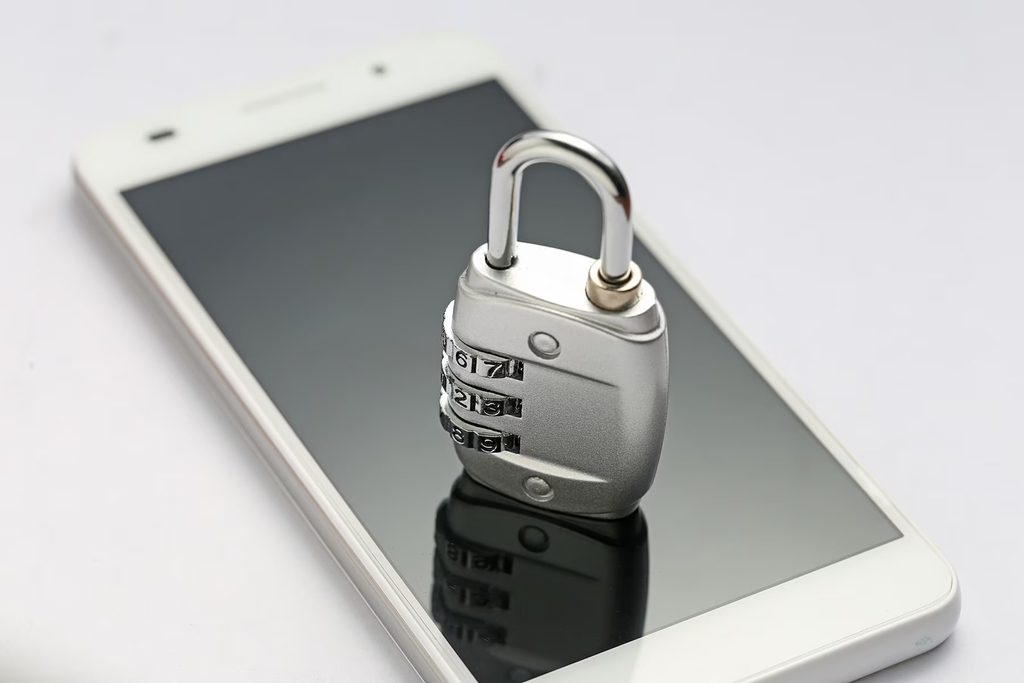Is Facetime Secure?

FaceTime is a video communication platform developed by Apple Inc. that allows users to make video and audio calls from their Apple devices. It was first introduced in 2010 and has since become a popular platform for personal and business communication. This product is available on iPhones, iPads, and Mac computers.
Security is critical in video communication platforms to protect the privacy and confidentiality of users’ information and conversations. These programs may contain sensitive information, such as personal and financial data, and communication can involve discussing confidential business matters. Without adequate security measures, this information can be vulnerable to interception, eavesdropping, or hacking, putting users at risk of identity theft, fraud, or other malicious activities.
How Secure is Facetime?
FaceTime is generally considered to be a secure platform for video communication, as it uses end-to-end encryption to protect the privacy and security of users’ conversations. This means that only the participants in the conversation can access the content of the communication, as the data is encrypted and cannot be intercepted or accessed by Apple or any third-party. Furthermore, Apple has implemented other security measures, such as requiring users to sign in with their Apple ID and password, and enabling two-factor authentication to prevent unauthorized access to FaceTime.
However, it is important to note that no system is completely foolproof, and there have been occasional reports of security vulnerabilities or breaches in FaceTime, as well as other video communication platforms. Therefore, users should always exercise caution and use best practices, such as keeping their devices and software up to date, choosing strong passwords, and avoiding sharing sensitive information over video calls.
Is FaceTime Private and Secure?
FaceTime is generally considered to be a private and secure platform. Apple uses end-to-end encryption to safeguard the data transmitted between devices, ensuring that it’s virtually impossible for unauthorized parties to access the content of the calls. Even Apple doesn’t have access to the calls as it cannot decrypt them.
Are Facetime Calls Recorded?
FaceTime calls are not recorded or stored on Apple’s servers, which means that even government agencies cannot obtain access to them. However, Apple discloses on its website that it may record and store some information related to users’ iMessage and FaceTime usage for operational and product improvement purposes. Nonetheless, this information cannot be used to identify the users.
Is Facetime Secure and Private?
Apple logs some details about FaceTime calls, such as the invited participants and the network configurations of the devices involved, which it stores for up to 30 days. Apple doesn’t record whether the call was answered and assures users that it cannot access the call’s content.
Apple acknowledges that this program may communicate with its servers to check whether the person being contacted is available on FaceTime. The phone number and email address of the contacted party are then saved for a maximum of 30 days. Nonetheless, this should not raise any significant concerns since the data is encrypted, making it nearly impossible for anyone to intercept it. Additionally, neither your video call nor its recordings are stored on Apple’s servers. As a privacy-focused company, Apple doesn’t share users’ data with third parties.
However, to ensure greater security when using the service, we recommend taking a few additional precautions.
How FaceTime Ensures Security
The security measures in place on FaceTime, such as end-to-end encryption and secure key exchange, work together to protect the privacy of FaceTime users in several ways.
Can Facetime Be Tapped?
End-to-end encryption ensures that the data exchanged during a FaceTime call is secure and private by encrypting the conversation from the sending device before it is transmitted and only decrypting it on the receiving device. This means that the data cannot be intercepted or accessed by anyone, including Apple or any third-party, as the encryption and decryption are done only on the user’s devices.
The secure key exchange mechanism used by program ensures that only the intended recipient(s) can decrypt the communication. When a user initiates a FaceTime call, their device generates a unique session key that is exchanged with the other device(s) using a secure key exchange protocol. This process ensures that the communication is encrypted using a key that is unique to the call, and that only the devices involved in the call have access to the key.
Is Facetime Private?
Platform requires users to sign in with their Apple ID and password, and two-factor authentication is enabled to prevent unauthorized access to FaceTime accounts. This helps to protect users’ accounts from being compromised and ensures that only authorized users can access the service.
Overall, these security measures work together to ensure that FaceTime conversations are private and secure, and that users can communicate without worrying about their conversations being intercepted or accessed by unauthorized parties.
Potential Vulnerabilities in FaceTime
Like all technology, FaceTime is not completely secure. In this section, we’ll look at potential vulnerabilities that could compromise FaceTime security and suggest steps you can take to mitigate these risks.
Can Facetime Be Hacked?
In the past, FaceTime has had some security vulnerabilities and breaches. One notable incident occurred in 2019 when a bug in Group FaceTime was discovered that allowed a user to secretly listen in on the recipient before they answered the call. This was a significant breach of privacy and led to Apple disabling the Group FaceTime feature while they worked on a fix.
Another vulnerability was discovered in 2020, where a researcher found a flaw in the way FaceTime handles calls that can allow an attacker to force a user to answer a call without their knowledge. This bug was also quickly fixed by Apple.
While these problems were concerning, Apple has been proactive in addressing them and issuing patches to protect its users. However, there is always a risk of new vulnerabilities being discovered in the future, and it is important for users to stay informed and take precautions to protect their facetime privacy and security.
The likelihood of dangers of facetime being exploited is difficult to determine, as it depends on the intentions of potential attackers and the complexity of the vulnerabilities themselves. However, the potential consequences of such exploitation could be severe, as it could allow an attacker to eavesdrop on private conversations or gain access to sensitive information.
Tips for Improving FaceTime Privacy and Security
To improve the security of their FaceTime communication, users can follow these tips:
- Use a strong and unique password: Choose a password that is difficult to guess and includes a combination of letters, numbers, and symbols. It is recommended to refrain from using the same password for multiple accounts.
- Enable two-factor authentication: This adds an extra layer of security by requiring a code in addition to a password for login. This makes it more difficult for someone to gain access to your account, even if they have your password.
- Update your devices and software: Regularly update your device’s operating system and FaceTime app to ensure that you have the latest security patches. Hackers often target vulnerabilities in outdated software, so keeping everything up to date can help protect against potential threats.
- Avoid sharing sensitive information: As with any online communication platform, users should exercise caution when sharing sensitive information over FaceTime. It’s important to be cautious about the individuals you communicate with and the information you share.
- Use trusted networks: Only use FaceTime on secure networks that you trust, such as your home Wi-Fi or a trusted cellular network. Avoid using public Wi-Fi, which can be insecure and potentially allow for interception of your communication.
By following these tips, FaceTime users can better protect their privacy and security while using the platform.
Read also: Can Omegle Track You?
Comparison to Other Video Communication Platforms
FaceTime, Skype, and Zoom are popular video communication platforms that enable users to make video calls, voice calls, and send instant messages. Each platform has its own security measures and protocols to ensure users’ privacy and security. Let’s compare their security measures and relative strengths and weaknesses:
FaceTime

Strengths:
- End-to-end encryption is enabled by default, meaning that only the sender and recipient can access the call’s content.
- FaceTime uses a unique identifier for each call, which prevents others from accessing the conversation without permission.
- Privacy and security are areas where Apple is highly regarded for their strong reputation.
Weaknesses:
- Limited to Apple devices, which could be a disadvantage for those who don’t use Apple products.
- Some researchers have found vulnerabilities in FaceTime that could potentially allow attackers to eavesdrop on conversations.
Skype

Strengths:
- End-to-end encryption is available for instant messages and file transfers.
- Skype uses industry-standard encryption protocols, such as AES and TLS, to protect calls.
Weaknesses:
- Video calls are not end-to-end encrypted, and Skype can access the content of the calls.
- Skype is owned by Microsoft, which has had several privacy scandals in the past.
Zoom

Strengths:
- End-to-end encryption is available for paid users, and Zoom uses AES 256-bit GCM encryption, which is a strong encryption standard.
- Zoom has several security features, such as waiting rooms, password protection, and the ability to lock meetings.
Weaknesses:
- End-to-end encryption is not enabled by default for free users.
- Zoom has had several security and privacy issues in the past, including “Zoom-bombing” and sharing user data with Facebook.
Each video communication platform has its own security measures and protocols. FaceTime and Skype both have their weaknesses when it comes to end-to-end encryption, while Zoom has had some privacy and security issues in the past. It’s important for users to understand the security measures of each platform they use and take additional steps to protect their privacy and security, such as using a virtual private network (VPN) and strong passwords.
Conclusion
Facetime, Apple’s video and audio calling service, is designed with security and privacy in mind. It uses end-to-end encryption to protect the content of communications between devices. Service uses unique encryption keys for each call, further enhancing the security of the communication.
Overall, Facetime is considered to be a secure communication option for Apple users. However, no technology is 100% secure, and there is always a risk of vulnerabilities being discovered and exploited. As such, it’s crucial to prioritize security when using video communication platforms and take steps to protect your privacy.
Firstly, it’s recommended to research and choose a video communication platform that prioritizes privacy and security. Consider factors such as encryption, data storage policies, and user authentication protocols when selecting a platform.
Additionally, enable all available security features provided by the platform, such as two-factor authentication and password protection. Limit the distribution of meeting links and avoid sharing sensitive information over video communication platforms. If possible, opt for end-to-end encrypted services that provide the highest level of security.
Furthermore, it’s vital to maintain your device’s security by installing updates, using anti-virus software, and avoiding using public Wi-Fi networks when accessing video communication platforms.
Finally, consider using a virtual private network (VPN) to add an extra layer of security and protect your online activity’s privacy.
In conclusion, prioritizing security when using video communication platforms is essential to protect your privacy and sensitive information. By taking proactive measures and utilizing available security features, you can ensure a secure video communication experience.
No one has left a comment yet, be the first